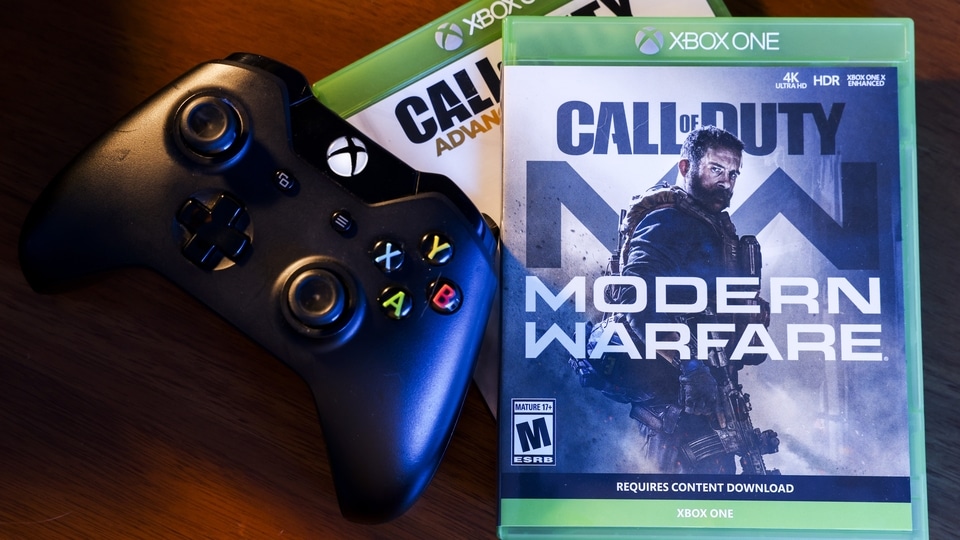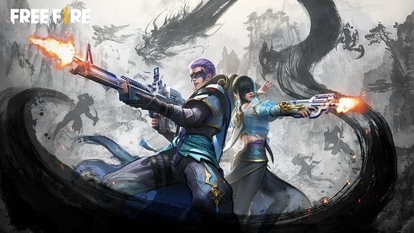What Disney Can Teach Microsoft in the Gaming Wars
Buying up dusty franchises can pay off. And there may still be Star Wars-like gems languishing out there.

Good content is hard to find. Look at Microsoft Corp. It's paying $69 billion to acquire Activision Blizzard Inc. — and by extension, the rights to that company's marquee videogame franchises, including Call of Duty.
That's still less risky than the alternative: building games from scratch. Budgets can balloon and all the outlay doesn't guarantee success. A new game can bomb and hobble the entire business, as the botched release of Cyberpunk 2077 showed. Shares of CD Projekt SA still trade about 70% below the high recorded before that disastrous launch.
There is another way. As Microsoft, Sony Group Corp., Tencent Holdings Ltd. and other giants engage in acquisitive wars for content, they should consider the Star Wars strategy.
When Walt Disney Co. bought Lucasfilm Ltd. and Marvel Entertainment Inc. for about $4 billion apiece, it picked up fan-friendly properties that had seen better days and were in need of fresh management. The likes of Black Panther and Thor were second-tier heroes who had never been box-office tentpoles, and Star Wars was languishing after the Jar Jar Binks years. Under Disney's tutelage, once-obscure characters like Boba Fett and Moon Knight have become the pillars holding up its Disney+ streaming service as the company deploys a multimedia strategy that spans film, television, cartoons and more.
But are there Star Wars-like franchises still out there? A number of Japanese gaming firms might fit the bill: Capcom Co., Square Enix Holdings Co., Konami Holdings Corp. and a few others. They don't have a blockbuster game like Call of Duty among them, but they've got deep catalogs — and would be much less expensive than $69 billion.
Square Enix not only has the Final Fantasy and Dragon Quest series, but thanks to its acquisition of Eidos in the late 2000s, also owns the likes of Tomb Raider. It trades at just 15 times earnings. Osaka-based Capcom owns the Resident Evil and Street Fighter franchises, along with cash cow Monster Hunter and a host of stagnating or dormant second-tier properties from Dino Crisis to Mega Man.
Even Konami, for whom gaming has largely been relegated to an afterthought, still holds the rights to the likes of Metal Gear Solid and Silent Hill. While the company has mismanaged these titles these for years, gamers' memories of their heyday run deep. In the right hands, they would make a valuable addition to a deep-pocketed investor's catalog. Even with a 50% premium, Konami could be had for less than $14 billion — and it would come with a money-spinning line of fitness gyms for no extra cost.
As Microsoft and now Sony build out their on-demand gaming catalogs, the value of familiar names is only going to rise. The movie industry is an object lesson. Big-budget movies now almost exclusively come from safe, recognized properties. Even franchises such as The Fast and the Furious or also-ran superheroes like Aquaman are capable of taking in billions, as enthusiastic fans generate a virtuous cycle of hype.
In gaming, there aren't that many recognizable assets left. That's one reason private-equity firms are reportedly looking at France's Ubisoft Entertainment SA, the video game publisher that makes the Assassin's Creed franchise. Other opportunities abound: Kadokawa Corp. has more than tripled in value since the beginning of 2020, aided by its ownership of From Software, maker of the critical darling and sales hit Elden Ring.
Saudi Arabia's sovereign wealth fund is paying attention: Having scored big on its investment in Activision, it has now taken stakes not just in Capcom, but also Japan's Koei Tecmo Holdings Inc., which owns relatively minor properties such as Ninja Gaiden and Dynasty Warriors, and the Tokyo-based online game maker Nexon Co.
Admittedly, doing M&A deals in Japan isn't easy. The double-barreled names of Bandai Namco Holdings, Koei Tecmo and Sega Sammy Holdings are testament to the series of mergers that Japan's videogame makers have gone through. But those unions were mostly out of desperation — sinking firms clinging to one another for survival.
Still, Japan isn't the same place that laughed Microsoft executives out of the room when they attempted to acquire Nintendo Co. more than 20 years ago. Companies in other industries have begun to show that even hostile takeovers are no longer taboo. And, for American corporations looking at Japanese targets, there is an additional incentive: the yen is at its weakest against the U.S. dollar in two decades.
One estimate now puts the value of Marvel, bought for $4 billion, at $53 billion in 2021. Of course, that's thanks to Disney's smart stewardship. In the right hands, some of Japanese gaming's faded gems might reclaim their old sheen — and pay huge dividends for their new owners.
Gearoid Reidy is a Bloomberg News senior editor covering Japan. He previously led the breaking news team in North Asia and was the Tokyo deputy bureau chief.
Catch all the Latest Tech News, Mobile News, Laptop News, Gaming news, Wearables News , How To News, also keep up with us on Whatsapp channel,Twitter, Facebook, Google News, and Instagram. For our latest videos, subscribe to our YouTube channel.


























